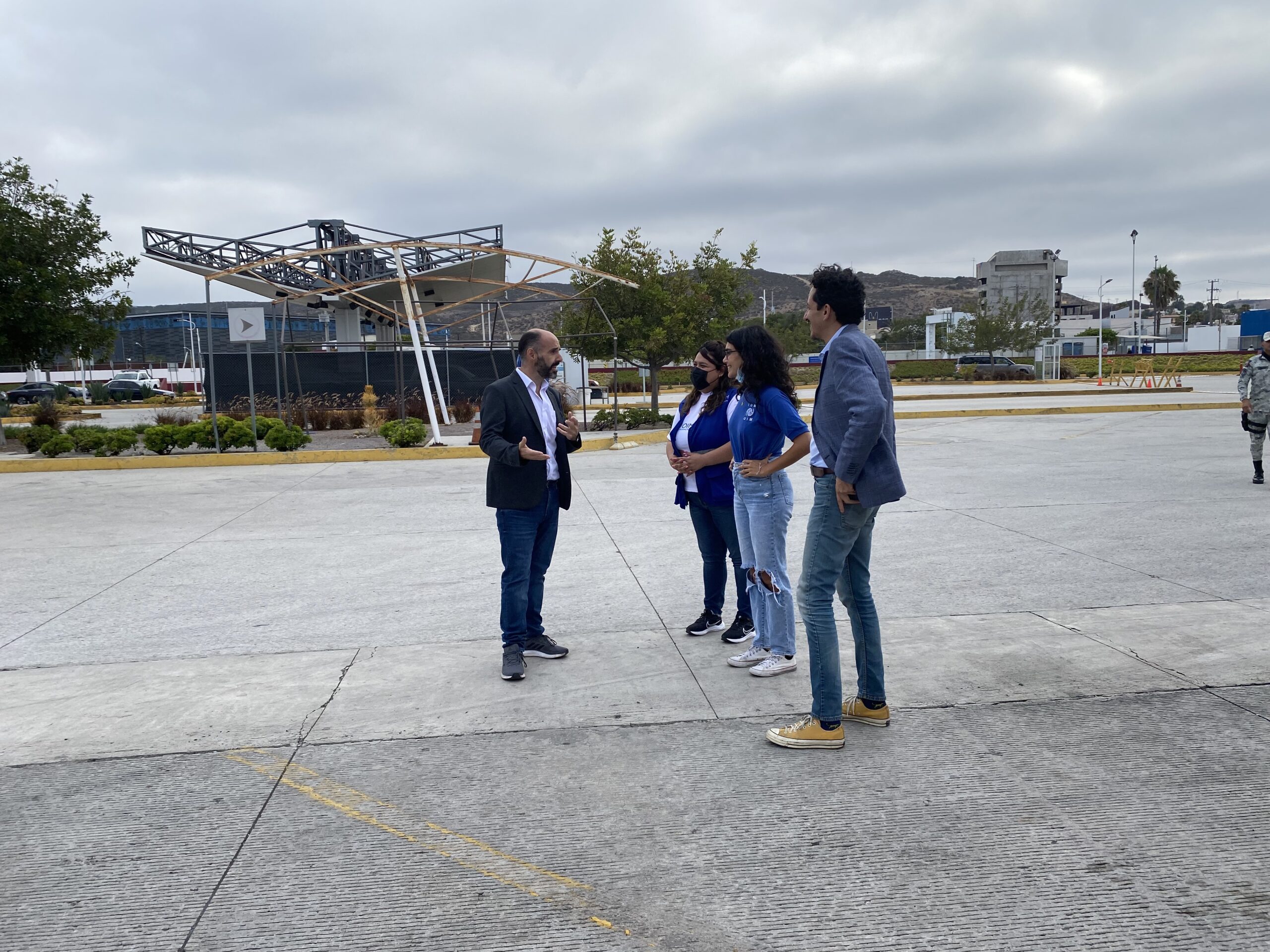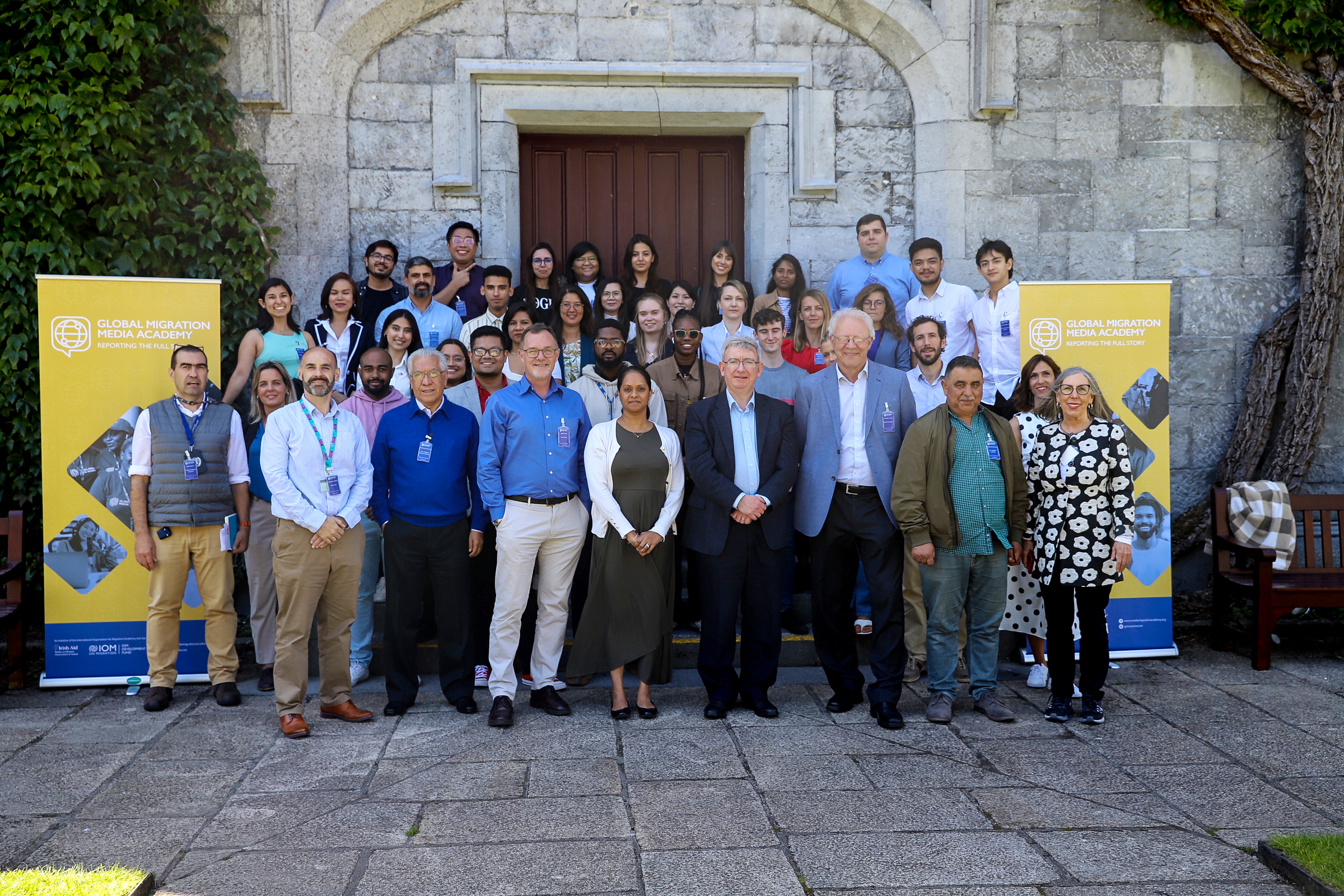
Tom Felle, Associate Professor in Journalism and Media at the University of Galway, has spent three years leading the development of an UN-funded global media literacy programme to respond to the growing threats posed by disinformation targeting refugees and migrants.
Here, he writes that the Global Media Migration Academy chimes well with the University’s core value of openness and the UN’s Sustainable Development Goals.
THE light of the University of Galway’s clocktower has stood as a beacon of hope for every student who has passed through its doors for nearly 180 years. It symbolises the University’s openness and welcoming nature, signifying a safe place for all to be accepted, to study, and to learn.
Some of the University’s finest graduates came to Ireland fleeing war and persecution, and they are now among its greatest ambassadors, showcasing the power of education as a means of social mobility and empowerment through learning. Their transformative stories of resilience and success underscore Galway’s proud status as a University of Sanctuary, providing a haven and a platform for all to pursue learning and growth, irrespective of their background.
There was a time, not so long ago, when the same was true of Ireland. Shaped by our own history of famine and emigration, we were generous in our welcome to those seeking a new life. But the Cead Mile Fáilte that the country had been famous for has been greatly challenged in recent months by the increasing nastiness of protests against housing refugees in communities across the country.
What’s happening in Ireland is not unique; it is happening around the world. Misinformation and disinformation targeting minorities, including migrants, are rampant. Just look at the toxic nature of debate in the US and the UK, where migration has been exploited by the fringes. Extremists, far-right groups, and populists have weaponised the issue, fuelling hatred for political ends, stoking fears, sowing dissent, and spreading disinformation.
Here, racist, xenophobic, fascist and extremist narratives, and hashtags like ‘#Irelandisfull’ populate social media. These tropes follow a well-worn pattern: the spread of disinformation about migrants and refugees often taps into deep-seated anxieties, offering misleading and simplistic explanations for complex issues like housing shortages and strained public services.
These narratives resonate with some because they appeal to underlying fears, however implausible they may seem. The challenge lies in debunking these myths while addressing the genuine concerns that give rise to such susceptibility.

Migration, a multifaceted phenomenon with significant socio-economic, political, and cultural implications, often dominates international discussions. It is a subject that evokes strong emotional reactions and is often influenced by political, cultural, social, and economic perspectives.
The portrayal of migration in public debate and in the media tends to be fraught with oversimplifications and biases, leading to skewed public perceptions. The media can play a crucial role in shaping public opinion and policy by providing accurate and comprehensive coverage of migration. However, without proper education and understanding, media practitioners may inadvertently propagate misleading narratives that could perpetuate prejudice and xenophobia. This issue was starkly highlighted during the COVID-19 pandemic, where media coverage of migration often fuelled anxiety, mistrust, and misinformation.
Recognising the challenges in media representation of migration, several NGOs and international organisations have introduced initiatives aimed at improving the quality of migration reporting. The UN’s ‘Verified’ initiative emphasises the dissemination of authentic, verified data, while UNESCO works towards developing global standards for education in journalism, focusing on disinformation and ‘fake news’.
In 2021 the University of Galway became the lead academic partner in a global consortium to tackle disinformation targeting migrants, called the Global Migration Media Academy (GMMA). The alliance included founding partners from regions including Central and North Africa, Latin America, Asia, and Europe, with the aim of developing media literacy resources to directly challenge harmful stereotypes and tropes about migrants.
The project was co-funded by the UN’s International Organisation for Migration, and Ireland’s Department of Foreign Affairs. The initiative aimed to reshape how migration stories are told and understood worldwide. It included the development of a series of educational resources, and training, to better equip the media and the public to understand the complex area of migration, as well as digital literacy training on how to be vigilant of disinformation.
Since its inception, the GMMA has made significant strides in transforming how migration stories are crafted and disseminated. Galway hosted the first Global Migration Summer School in 2022, involving more than 50 journalists and journalism students, policy makers, diplomats and UN officials from a range of countries.
A documentary filmed in the University of Galway’s television studios was broadcast internationally, reaching a broad audience and sparking constructive dialogue on migration policies. Feedback from alumni and stakeholders has been overwhelmingly positive, with many noting how GMMA has transformed their approach to journalism and advocacy.
The UN’s Sustainable Development Goals (SDGs) are a global blueprint adopted by all United Nations Member States in 2015, designed to achieve a better and more sustainable future for all by 2030. These 17 interlinked goals address the global challenges the world faces, including poverty, inequality, climate change, environmental degradation, peace, and justice.
The University of Galway, a designated Sustainable Development Goals Champion for 2023-2024, has been recognised globally for its leadership in sustainability, integrating these goals across teaching, community engagement, and research initiatives.
Effectively managing migration and addressing the misinformation surrounding it is crucial for the progress of several SDGs, underscoring the need for initiatives like the GMMA to promote informed and nuanced discourse on migration’s role in sustainable development.
The urgency of this work has become all too apparent in the last year. As recent protests in Ireland have shown, the global movement of people is intensely politicised, and it will continue to dominate debate as global conflicts persist, and the impact of climate change worsens.
The University of Galway’s partnership in the GMMA serves as a platform to foster a more accurate, diverse, and empathetic portrayal of migration stories. It stands as a beacon of the university’s strategic value of openness and is making a significant global impact.